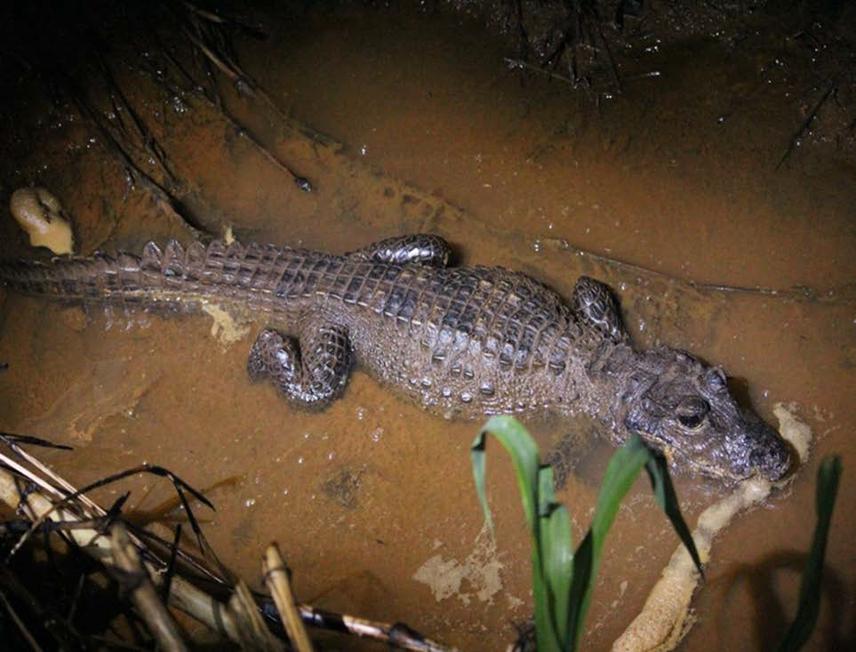Clement Sullibie Saagulo Naabeh
Other projects
6 Oct 2021
Promoting Urban Protection of the Vulnerable West African Dwarf Crocodile through Grassroots Approach in Ghana
18 Oct 2023
Developing Community-Based Threat Management Approaches for Protecting the Vulnerable West African Dwarf Crocodile in Ghana
West African dwarf crocodile is among the most threatened crocodilians in the world due to unsustainable exploitation for meat and habitat destructions. Despite its threatened status, it still remains one of the least studied crocodilians in the world. Lack of basic ecological data and awareness is hindering targeted management actions for the species especially in urban landscapes where its habitats are rapidly being converted into infrastructural use. This project will investigate the status and ecology of West African dwarf crocodile in the Kumasi Metropolitan Area-Ghana. This information will be used together with stakeholder consultations to develop an urban Conservation Action Plan for the species in Kumasi Metropolis. The project will also promote public awareness through tailored educational outreach programmes. Findings and outputs from this project will be shared with all the key stakeholders including the Ghana Wildlife Division to facilitate the species’ protection in the Kumasi Metropolis.

Adult dwarf crocodile
The Vulnerable African dwarf crocodiles have recently been split into three distinct species (Eaton et al., 2009; Shirley et al., 2014) and an ongoing IUCN threat assessment indicates the West African form (Osteolaemus sp. aff. tetraspis) may warrant Endangered status (M. Shirley, pers. comm.). Despite the recent work dedicated to this species, it is still considered among the least known crocodilians in the world, where even sightings across much of its potential distribution are unrecorded. This lack of basic ecological data is hindering targeted management actions for this species, including management of this species in urban and metropolitan zones – of which it is relatively tolerant. Contextually, the only existing scientific data on dwarf crocodiles in Ghana constitute that of Shirley et al., (2009) who reported the dwarf crocodile to be experiencing severe population decline in Ghana and Kumasi metropolis is among the very few urban areas in Ghana that still harbours this species. Unfortunately, urbanization in the metropolis is rapidly replacing the habitats of the species. It is therefore, evident that urban dwarf crocodile’s long-term persistence is uncertain unless conservation actions are taken.
Hence, the aim of this project is to provide first-hand ecological data and lead in multi-stakeholder dialogues for the development of a targeted conservation and management plan and build local capacity and public awareness through community education. The results of this project will advance the urban management of, not only this species, but crocodiles throughout the region – which are increasingly repopulating urban areas, from Kumasi in Ghana to Abidjan in Cote d’Ivoire (M. Shirley, pers. comm.).
This is truly a frontier field, especially in West Africa, where increasingly urban populations rely less on locally harvested wild meat, allowing species to recover in developed areas. The project will adopt diurnal survey method to assess the population, distribution, and habitat threat status of the species. Social (household and market) surveys will be conducted to obtain information on crocodile meat, and the general perception of people on crocodile conservation. Community, public, and school awareness will be created through education campaigns, and stakeholder consultation workshops.